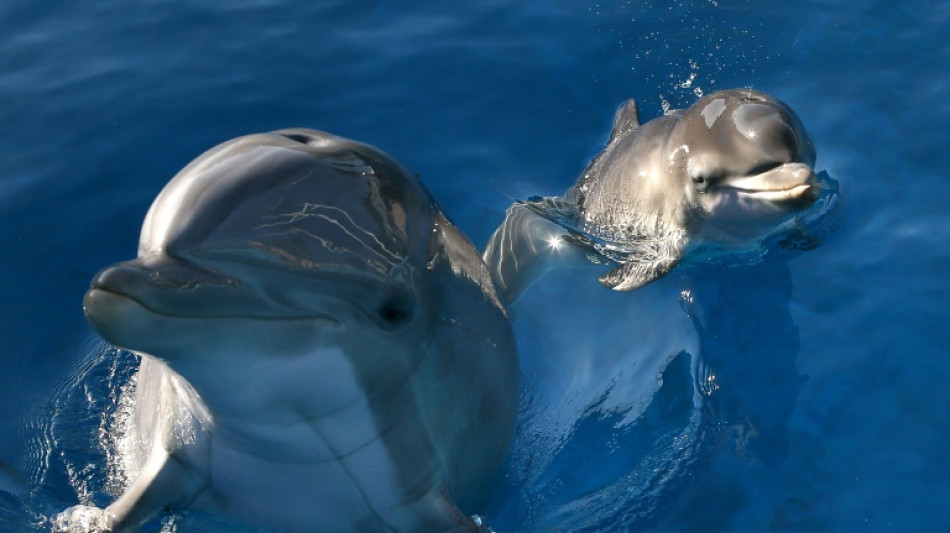
-
 Turkey bans elective C-sections at private medical centres
Turkey bans elective C-sections at private medical centres
-
Lebanon army says 3 troops killed in munitions blast in south

-
 N.America moviegoers embrace 'Sinners' on Easter weekend
N.America moviegoers embrace 'Sinners' on Easter weekend
-
Man Utd 'lack a lot' admits Amorim after Wolves loss

-
 Arteta hopes Arsenal star Saka will be fit to face PSG
Arteta hopes Arsenal star Saka will be fit to face PSG
-
Ukrainian troops celebrate Easter as blasts punctuate Putin's truce

-
 Rune defeats Alcaraz to win Barcelona Open
Rune defeats Alcaraz to win Barcelona Open
-
Outsider Skjelmose in Amstel Gold heist ahead of Pogacar and Evenepoel

-
 Arsenal make Liverpool wait for title party, Chelsea beat Fulham
Arsenal make Liverpool wait for title party, Chelsea beat Fulham
-
Trump slams 'weak' judges as deportation row intensifies

-
 Arsenal stroll makes Liverpool wait for title as Ipswich face relegation
Arsenal stroll makes Liverpool wait for title as Ipswich face relegation
-
Sabalenka to face Ostapenko in Stuttgart final

-
 Kohli, Padikkal guide Bengaluru to revenge win over Punjab
Kohli, Padikkal guide Bengaluru to revenge win over Punjab
-
US aid cuts strain response to health crises worldwide: WHO

-
 Birthday boy Zverev roars back to form with Munich win
Birthday boy Zverev roars back to form with Munich win
-
Ostapenko eases past Alexandrova into Stuttgart final

-
 Zimbabwe on top in first Test after Bangladesh out for 191
Zimbabwe on top in first Test after Bangladesh out for 191
-
De Bruyne 'surprised' over Man City exit

-
 Frail Pope Francis takes to popemobile to greet Easter crowd
Frail Pope Francis takes to popemobile to greet Easter crowd
-
Lewandowski injury confirmed in blow to Barca quadruple bid

-
 Russia and Ukraine accuse each other of breaching Easter truce
Russia and Ukraine accuse each other of breaching Easter truce
-
Zimbabwe bowl Bangladesh out for 191 in first Test in Sylhet

-
 Ukrainians voice scepticism on Easter truce
Ukrainians voice scepticism on Easter truce
-
Pope wishes 'Happy Easter' to faithful in appearance at St Peter's Square

-
 Sri Lanka police probe photo of Buddha tooth relic
Sri Lanka police probe photo of Buddha tooth relic
-
Home hero Wu wows Shanghai crowds by charging to China Open win

-
 Less Soviet, more inspiring: Kyrgyzstan seeks new anthem
Less Soviet, more inspiring: Kyrgyzstan seeks new anthem
-
Defending champion Kyren Wilson crashes out in first round of World Snooker Championship

-
 NASA's oldest active astronaut returns to Earth on 70th birthday
NASA's oldest active astronaut returns to Earth on 70th birthday
-
Exec linked to Bangkok building collapse arrested

-
 Zelensky says Russian attacks ongoing despite Putin's Easter truce
Zelensky says Russian attacks ongoing despite Putin's Easter truce
-
Vaibhav Suryavanshi: the 14-year-old whose IPL dream came true

-
 Six drowning deaths as huge waves hit Australian coast
Six drowning deaths as huge waves hit Australian coast
-
Ukrainian soldiers' lovers kept waiting as war drags on

-
 T'Wolves dominate Lakers, Nuggets edge Clippers as NBA playoffs start
T'Wolves dominate Lakers, Nuggets edge Clippers as NBA playoffs start
-
Taxes on super rich and tech giants stall under Trump

-
 Star Wars series 'Andor' back for final season
Star Wars series 'Andor' back for final season
-
Neighbours improvise first aid for wounded in besieged Sudan city

-
 Tariffs could lift Boeing and Airbus plane prices even higher
Tariffs could lift Boeing and Airbus plane prices even higher
-
Analysts warn US could be handing chip market to China

-
 Unbeaten Miami edge Columbus in front of big MLS crowd in Cleveland
Unbeaten Miami edge Columbus in front of big MLS crowd in Cleveland
-
Social media helps fuel growing 'sex tourism' in Japan

-
 'Pandora's box': alarm bells in Indonesia over rising military role
'Pandora's box': alarm bells in Indonesia over rising military role
-
Alaalatoa hails 'hustling hard' Brumbies for rare Super Rugby clean sheet

-
 Trio share lead at tight LA Championship
Trio share lead at tight LA Championship
-
Sampdoria fighting relegation disaster as old heroes ride into town

-
 Recovering pope expected to delight crowds at Easter Sunday mass
Recovering pope expected to delight crowds at Easter Sunday mass
-
Nuggets edge Clippers in NBA playoff overtime thriller, Knicks and Pacers win

-
 Force skipper clueless about extra-time rules in pulsating Super Rugby draw
Force skipper clueless about extra-time rules in pulsating Super Rugby draw
-
Nuggets edge Clippers in NBA playoff overtime thriller, Pacers thump Bucks


Pee pals: Dolphins taste friends' urine to know they're around
Think about people you know, and how you could tell they were around even if you couldn't see them: perhaps their voice, or a favored perfume.
For bottlenose dolphins, it's the taste of urine and signature whistles that allow them to recognize their friends at a distance, according to a study published Wednesday in Science Advances.
"Dolphins keep their mouths open and sample urine longer from familiar individuals than unfamiliar ones," first author Jason Bruck of the Stephen F. Austin State University in Texas wrote in an email to AFP.
"This is important because dolphins are the first vertebrate ever shown to have social recognition through taste alone."
The team, which included Sam Walmsley and Vincent Janik from the University of St Andrews, wrote that the use of taste could be highly beneficial in the open ocean because urine plumes persist for a while after an animal has left.
This alerts dolphins to the recent presence of that individual even if it had not signaled its presence vocally.
The question of whether animals can attach "labels" to their friends in their minds has been difficult to answer.
Bottlenose dolphins, which use signature whistles to selectively address specific individuals, and can remember these for over 20 years, were thus an interesting test case.
To investigate, the team presented eight dolphins with urine samples from familiar and unfamiliar individuals, finding they spent around three times as long sampling urine from those they knew.
Genital inspection, in which a dolphin uses its jaw to touch the genitals of another individual, is common in their social interactions, providing a good opportunity to learn the taste of others' urine.
For the purposes of this study, the dolphins were trained to provide urine samples on demand in exchange for food.
Dolphins do not have olfactory bulbs, leaving the team certain it was taste and not smell at play.
For the second part of the experiment, the team paired urine samples with recordings of signature whistles played via underwater speakers, corresponding to either the same dolphin that provided the urine sample, or a mismatched sample.
Dolphins remained close to the speaker longer when the vocalizations matched the urine samples -- potentially indicating that the two congruent lines of evidence together evoked more interest.
"It is not every day that scientists find evidence of 'noun'-like use of signals in a non-human vocal system. That's pretty exciting," Bruck told AFP.
Dolphins have rich social worlds, he added, and it may be "just as advantageous for a dolphin to recognize alliance members as it is for them to recognize potential antagonists."
- Obesity connection? -
The team suggested that lipids were likely responsible for individual chemical signatures.
"Given the recognition skills revealed in our study, we think that it is likely that dolphins can also extract other information from urine, such as reproductive state, or use pheromones to influence each other's behavior," they wrote.
In a surprising twist, the research could have implications for human obesity: the same gene that allows dolphins to identify lipids in urine is present in humans, where it helps people know when they have had enough to eat.
Studying the gene in dolphins could therefore improve understanding of how it works in people.
The work could also have other implications: human-caused pollution such as oil spills or other chemical runoff may impede the dolphins' ability to signal one another, thus doing even more harm than previously thought, said Bruck.
H.Seidel--BTB


